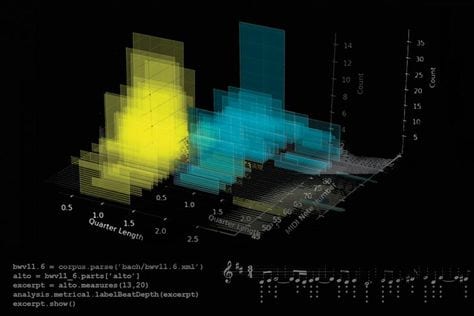
Music Decoding: Forgetting Perfection, Finding Results in Digital Musicology
Massachusetts Institute of Technology (MIT) Michael Scott Cuthbert
February 7, 2020 · 2:30 pm—4:30 pm · 106 Woolworth
Department of Music; The Center for Digital Humanities

Musicology Colloquium Series
When musicologists make a decision to engage with the digital humanities, they are often encouraged to join in “music encoding”. The process of creating digital scholarly editions (think Urtext or M2) might feel like the twenty-first century continuation of the long, distinguished, and noble discipline of critical editing within musicology. “Learn the Music Encoding Initiative—MEI— and join the future,” speak panel after panel at AMS and other musicology conferences. But what past Gesamtausgaben and other scholarly editions long possessed, MEI scores lack: that is, readers. Computational musicology’s emphasis on perfect digital editions that cannot be decoded or read by anyone outside of the projects themselves sets it far behind music analysis projects created by outsiders—theorists, composers, scientists, and programmers—who understand that decoding music is at least as important as encoding it. The paper uses results from imperfect encodings and un-critical editions to make claims about style and borrowing in popular and medieval music that are possible by prioritizing what we want to get out of digital humanities over what we want to put in.
Michael Scott Cuthbert, Faculty Director of Digital Humanities and Associate Professor of Music at the MIT, is a musicologist who has worked extensively on music of the 14th century, computational musicology, and digital humanities. Cuthbert’s research lab has produced “music21,” an open-source toolkit for computer-aided musical analysis, which has an installed user base in the tens of thousands. He directs MIT’s programs in Digital Humanities, which creates code to educate and solve problems across disciplines. Cuthbert’s current book project covers sacred music in Italy during the Black Death and Great Schism.















